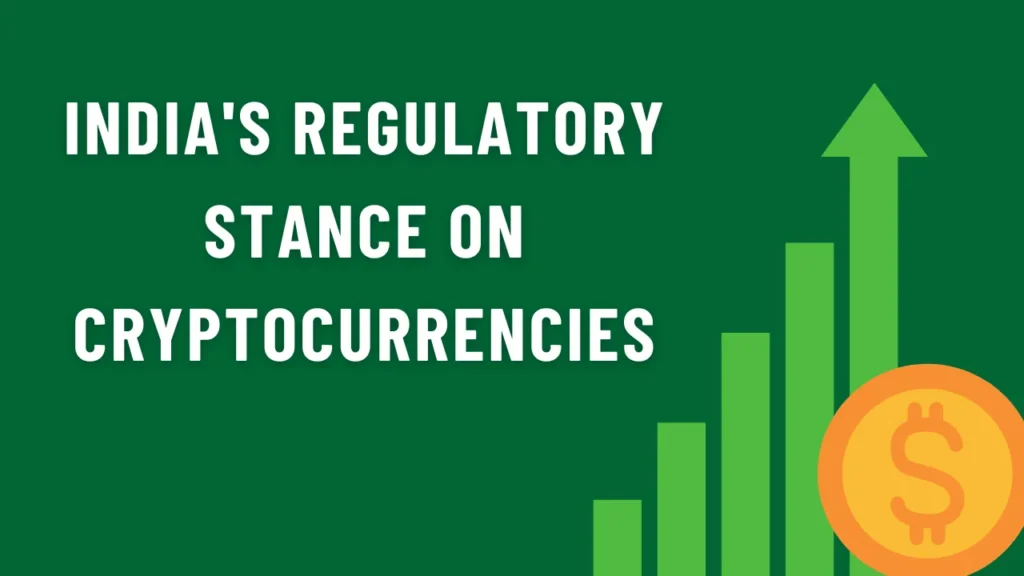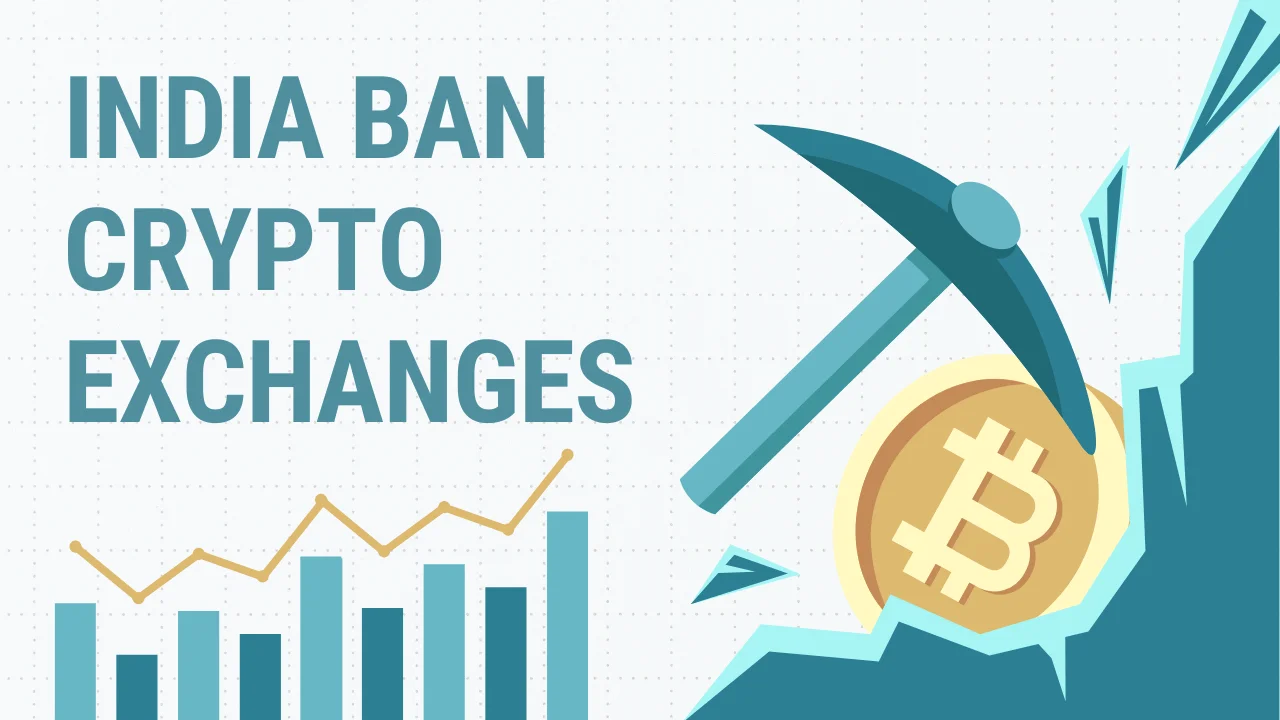The crypto community around the world is reeling from the recent regulatory actions taken by India against cryptocurrency exchanges, which came at a time when digital currencies were changing the face of financial transactions. In a surprising move, India ban crypto exchanges, sending shockwaves through the industry. In the fight for a safe and regulated digital economy, the country has taken a strong stand against offshore crypto exchanges that do not follow its financial regulations. To better understand the ban’s effects, the regulatory framework for cryptocurrencies in India, and the wider global stage, this article explores the regulatory landscape in great detail.
India’s Regulatory Stance on Cryptocurrencies

To safeguard investors and keep the economy stable, the Indian government is taking a regulatory approach to cryptocurrencies. India is leading the charge against illegal financial activities linked to digital currencies by going after offshore VDASPs that don’t follow the Prevention of Money Laundering Act, 2002 (PMLA).
India FIU IND Crypto Crackdown

A number of well-known offshore VDASPs, including Binance, KuCoin, and Huobi, have been served with Show Cause Notices by the Indian Financial Intelligence Unit (FIU IND), demonstrating a clear stance. All financial service providers operating within India’s borders must adhere to the country’s regulations, and these measures demonstrate India’s determination to fight money laundering.
Legal Framework for Cryptocurrency in India
The crypto ban’s legal challenges show how complicated it is to incorporate new digital assets into old financial systems. The result of the ongoing legal battles between the affected exchanges and the government over the ban will have far-reaching consequences for the regulation of cryptocurrencies in India and maybe even the world at large.
Collaboration for Crypto Regulation
More and more, people are demanding that the government and the cryptocurrency community work together. In order to draft rules that safeguard investors without impeding innovation, stakeholders contend that collaborative efforts are crucial. A fair and progressive framework for regulating cryptocurrencies may be possible with this partnership approach.
Impact of Indian Crypto Exchange Ban
The ban might have far-reaching consequences for the global cryptocurrency market, not just for the platforms that are directly impacted. The move by India could lead other nations to reconsider their own cryptocurrency regulations, which could lead to a more uniform international framework.
Investor Protection in Crypto Regulations
The safeguarding of investors is central to India’s regulatory initiatives. The government’s goal in implementing stringent financial regulation is to create a more secure investment environment by protecting investors from the dangers and volatility of unregulated cryptocurrency markets.
Global Repercussions and the Future of Cryptocurrency Regulation
The story of India’s approach to cryptocurrency regulation is important on a global scale and should not be treated as a mere domestic issue. India is one of the biggest economies in the world, so its regulatory decisions could lead other countries to think about regulating digital currencies more strictly.
Impact on Global Markets
What happens in India with cryptocurrency could have far-reaching consequences. Crypto enthusiasts around the world are keeping a careful eye on regulatory news out of India because of the country’s size and potential impact on global market dynamics. This may cause other countries to follow suit and tighten their regulation of cryptocurrencies.
Legal Responses and Challenges
What happens next with crypto regulation on a global and national scale will depend on the legal reactions to India’s cryptocurrency exchange ban. The results of these lawsuits may set important standards for other areas that are facing the same problems.
Technological and Financial Implications
A ban on cryptocurrency exchanges in India would have far-reaching monetary and technical effects beyond just the platforms themselves. As a result, it’s up to the crypto community to come up with new ideas and figure out how to work within existing regulatory frameworks all while pushing for blockchain expansion.
Collaboration Between Government and Crypto Industry
A successful collaboration between governments and the crypto industry might determine the fate of cryptocurrency in India and around the world. Their combined efforts will allow for the crypto industry to flourish while also protecting investors and fostering financial stability.
Case Studies on Regulatory Approaches
India and other countries can learn a lot from the experiences of other countries that have done things differently with cryptocurrency, such as revisiting bans on exchanges or introducing new regulatory frameworks. Finding a happy medium between government oversight and the expansion of the digital economy can be better understood by looking at these cases.
Legal Challenges Against Crypto Ban
A number of challenges to the crypto exchange ban are about to unfold in India’s legal system. The future of cryptocurrency exchanges in India and the establishment of global standards for their regulation are both at stake in these ongoing court battles.
Avenues for Legal Contestation
In preparation for challenging the government’s decision, impacted exchanges are considering all available legal options. This involves arguing for a more complex method of regulating cryptocurrencies that does not explicitly prohibit exchanges and disputing the PMLA’s relevance to their operations.
Potential Outcomes of Legal Challenges
Possible far-reaching consequences may result from these legal challenges. A win for the government could strengthen its position and persuade other nations to implement comparable policies, while a win for the exchanges could promote a more cooperative approach to regulation.
Setting Precedents for Future Regulation
Important precedents for the regulation of cryptocurrencies on a global scale will most certainly be set by the legal battles in India. They will put other countries’ regulatory strategies to the test by balancing national security concerns with the promotion of technological innovation.
Influence on Global Cryptocurrency Regulations
Global regulators will be closely observing the outcomes of India’s legal challenges. A complex legal resolution may impact international norms for bitcoin regulation by providing an example of how to balance regulatory supervision with the expansion of the digital economy.
Financial Stability Through Crypto Activities
The goal of India’s regulatory initiatives regarding cryptocurrency goes beyond the simple prohibition of non-compliant exchanges; rather, it is to ensure that investors are protected while the financial system is stabilized by incorporating cryptocurrency into it.
Preventing Money Laundering and Financial Terrorism
The fight against financial terrorism and money laundering is central to India’s regulatory framework. To prevent criminals from taking advantage of the anonymity that cryptocurrency transactions provide, India is cracking down on PMLA compliance.
Promoting Investor Protection
To safeguard investors, the regulatory framework restricts operations to exchanges that demonstrate strong security measures and transparent operations. The goal is to make the market less susceptible to fraud and manipulation so that investors can feel more secure.
Encouraging Responsible Innovation
The rules may be onerous at first glance, but they really promote ethical innovation among exchanges and service providers. Companies can help keep the financial system stable and push technology to new limits by operating in accordance with regulatory standards.
Frequently Asked Questions
Why did India ban certain cryptocurrency exchanges?
India imposed the ban to combat money laundering and protect investors from risks associated with unregulated cryptocurrency markets.
Can affected exchanges legally challenge the ban?
Yes, affected exchanges are exploring legal avenues to challenge the ban, with outcomes potentially influencing future regulations.
What could be the global impact of India’s crypto regulations?
India’s regulatory approach may influence other countries to adopt similar measures, affecting the global cryptocurrency landscape.
How does India’s ban affect investors?
The ban aims to protect investors by ensuring that only compliant and secure exchanges operate, reducing the risk of fraud and volatility.
Will India’s legal challenges set a precedent for other countries?
Yes, the outcomes of India’s legal challenges could serve as important precedents for global cryptocurrency regulation.
Also Read: Is Crypto Legal in India? All You Need to Know
Conclusion
The world’s narrative on digital currencies is at a crossroads, and India has taken bold steps to regulate cryptocurrency exchanges amidst the recent headlines of “India Ban Crypto Exchanges”. India is demonstrating how other countries should handle the intricate relationship between regulatory frameworks, the necessity for financial stability, and legal hurdles. Global cryptocurrency regulation is likely to be shaped by the collaborative efforts of governments and the crypto industry, as well as the legal outcomes of these challenges. As these events play out, it becomes more apparent that moving forward calls for a middle ground strategy that promotes innovation and digital inclusion in the financial sector while simultaneously protecting the interests of investors.

Timothy Jensen is an expert writer who specializes in the world of cryptocurrencies, including blockchain technology and Bitcoin. He has a passion for explaining complex topics in an easy-to-understand way. Timothy’s work aims to demystify the digital currency landscape for his readers.

